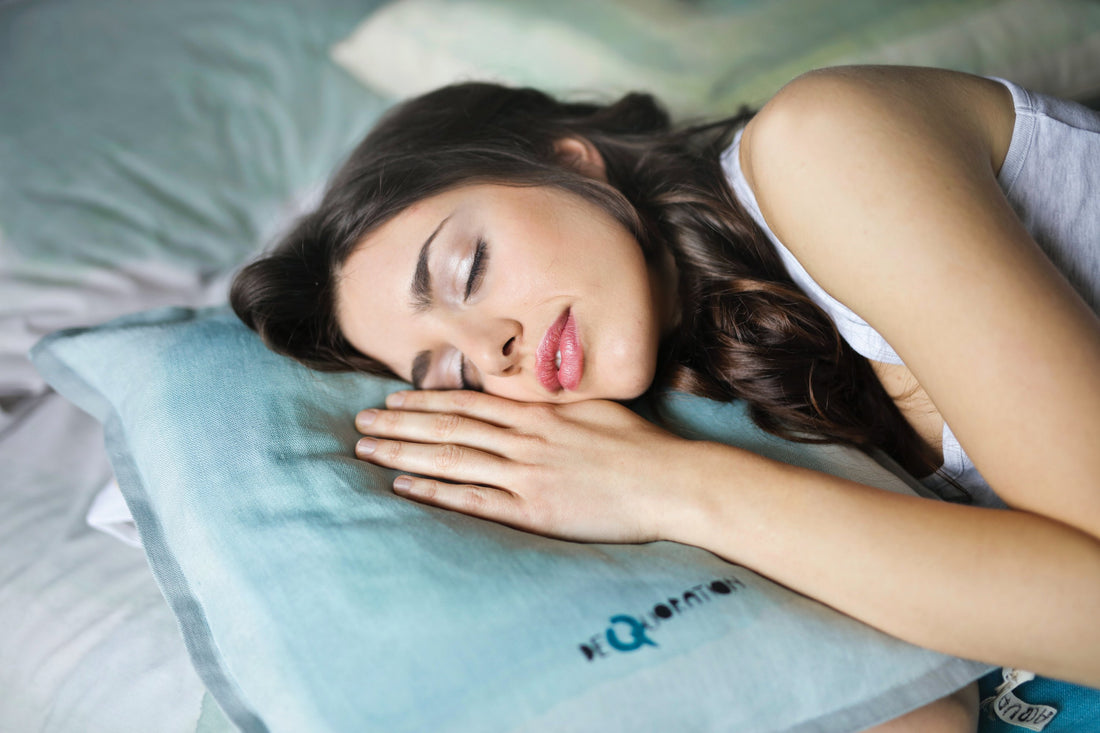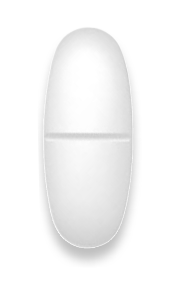Wake up easier – top tips from the experts

- The body needs energy to wake up. To wake up more easily, you need to have slept well beforehand.
- To wake up more easily in the morning, you should always go to bed at the same time. This supports a consistent sleep rhythm.
- B・SYNC ON before bed also helps your body wake up refreshed and light the next day.
- Sunlight in the morning supports your body’s natural circadian rhythm and gently helps you wake up.
- A balanced breakfast gives you energy and important nutrients for a good start to the day.
It seems as if more and more people are struggling to get out of bed in the morning. Students, teachers, business people, parents - those who have to get up early with the alarm clock often have problems starting the day refreshed. Various factors can contribute to this: stress, anxiety, electronic devices before going to bed and, last but not least, a disturbed sleep rhythm.
If you wake up groggy, you'll start the day with an energy deficit and will hardly be able to perform at your natural level. To be more productive in the morning, waking up effortlessly is the key. Luckily, there are a few things you can do before you go to bed and the next morning that will make getting up easier.

WHAT YOU CAN DO BEFORE GOING TO BED TO SLEEP WELL
It's much easier to get up in the morning if you've had a good night's sleep. How? With 7-9 hours of sleep per night, a set wake-up time, B・SYNC ON , avoiding alcohol and electronic devices before bed and, last but not least, an evening routine with meditation and relaxing music. We'll go into each of these points in more detail below.
7-9 hours of sleep
Getting enough sleep is one of the best tips for waking up earlier and easier. This may sound obvious, but it's often overlooked. According to the National Heart, Blood, and Lung Institute, most people need about seven to nine hours of sleep a night—some people need more.
If you don't get enough sleep, waking up in the morning will be harder. We recommend scheduling your sleep the way you would schedule your work - and giving it the same importance. This will help you wake up easier in the morning.
Wake up at the same time every day
If you have trouble waking up in the morning, it's best to keep your wake-up time as consistent as possible. This means going to bed at the same time every night and getting up at the same time every morning - even on weekends. So set your alarm to the same time and turn off the snooze function.
This regulates your body's natural sleep cycle and makes waking up in the morning easier. According to a study by Duncan et al. from 2016, an irregular sleep pattern is associated with a less healthy lifestyle. People who live unhealthily sleep worse. To the same extent, poor sleep has a negative impact on health.
Take B・SYNC ON
If you want to jump out of bed refreshed in the morning, then B・SYNC ON is the right thing for you. B・SYNC ON is a natural dietary supplement that reduces morning tiredness and helps you wake up more easily. The capsules have a delayed effect and contain a unique blend of the following ingredients : vitamin B5, vitamin B12, zinc, and caffeine.
The amount of caffeine in one dose of B・SYNC ON is as much as in a cup of espresso. Thanks to its delayed effect, it gives you the first energy boost in the morning. Vitamin B5 is important for enzyme function, helps maintain nerve cells and reduces fatigue. Vitamin B12 is another energy supplier that increases concentration and brain activity. Zinc also promotes cognitive performance, supports memory and strengthens the immune system. This gives your body all the nutrients it needs to start the day full of energy.
The delayed release , made possible by tiny pellets in the capsule, ensures that the caffeine only takes effect in the morning hours and you are not wide awake before you go to bed. Both caffeine and nutrients are only released after 7 hours and thus energize your body immediately when you get up. Most products on the market are designed exclusively for better sleep. B・SYNC ON 's formulation and mode of action, on the other hand, ensures that you wake up refreshed.
The effectiveness of B・SYNC ON capsules is clinically proven. Their effect begins after seven hours, reduces morning tiredness and provides a lot of energy - as soon as you wake up. When your alarm goes off, you feel awake, refreshed and full of energy.
Time for meditation
Another thing that helps you wake up more easily in the morning is meditating before going to bed. This calms your mind and body and allows you to fall into a more restful sleep. If you fall asleep quickly and sleep well, you will automatically wake up more refreshed in the morning. Meditation apps and websites can make it easier for you to start your new evening routine.

Turn off electronic devices
Smartphones, laptops, etc. before falling asleep are the enemies of restful sleep. According to a 2016 publication by Tosini et al., the blue light from screens disrupts the sleep cycle and makes it difficult to fall asleep. If you cannot avoid using your electronics, use reading glasses that filter the blue light or adjust the settings on your device. According to a 2018 study published in the Journal of Psychiatric Research, these measures can successfully counteract sleep disorders.
No alcohol in the evening
It is a common misconception that alcohol helps you fall asleep. The opposite is true: alcohol reduces the quality of sleep. This is because the body is busy detoxifying overnight. This then leads to you waking up tired and exhausted in the morning. To avoid headaches, mood swings and unrefreshing sleep, it is better to avoid alcohol in the evening.
Listen to relaxing music
Relaxing music can help with difficulty falling asleep. According to Trahan et al. (2018), music can help calm the mind and body and make it easier to fall asleep. There are various websites and apps where you can find relaxing music.
An evening routine to switch off
A relaxing evening routine can help prepare your body for sleep and make it easier to wake up in the morning. This routine can include a hot bath, a good book, yoga or stretching. Take some time to find out what works best for you. Once you've found your optimal evening routine, stick to it to signal to your body that it's almost time to sleep.

HOW TO WAKE UP EASIER IN THE MORNING
Even if you do everything right before bed, there will still be days when you find it hard to get up. So here are a few additional tips to help you wake up more easily in the morning:
Avoid snoozing
When the alarm first rings, it's tempting to just hit the snooze button. But that doesn't make getting up any easier! Think about your goal: Why did you set an alarm? Why do you want to get up? What nice things await you throughout the day? The answers to these questions will make it easier for you to roll straight out of bed instead of hitting the snooze button.
Let daylight into the room
According to the CDC, daylight in the morning helps wake up the body and mind. Daylight signals the brain to release appropriate hormones. If it is still dark outside, you can turn on a daylight lamp.
Cold shower
Even if it may sound scary, a cold shower in the morning revitalizes the body and mind! If that's not for you, try a warm shower first and then switch to cold for 30 seconds at the end. Over time, you can extend the cold shower.
A healthy breakfast
A nutritious breakfast in the morning gives you valuable energy for the whole day. According to a 2019 paper published in Current Developments in Nutrition, a healthy breakfast can help maintain mood and focus throughout the day.
sport
According to a 2018 study by Banno et al., exercising in the morning helps you feel more alert and regulates your sleep-wake cycle. Try to exercise for at least 30 minutes a day.
Stand up slowly
Avoid jumping out of bed straight away in the morning. Your circulation needs to adjust to being awake first. Getting up slowly makes the transition from sleep to wakefulness easier for your body and allows you to start the day more relaxed.
Start the day with fun
Every morning when you wake up, do something that brings you joy. This will motivate you and make you happy when you get out of bed. For example, you could read a few pages of a good book, take a walk in nature or play with your pet.
Coffee
Sometimes all you need is a cup of coffee to wake up in the morning. The caffeine provides an immediate energy and motivation boost. However, you should drink coffee in moderation to avoid nervousness and restlessness throughout the day. Try switching to alternatives such as kombucha, green tea or ginseng after your first coffee.

FINAL THOUGHTS
Hopefully the tips in this article will help you wake up more easily in the morning and start the day with a smile. Establishing new routines takes time and practice. So be patient with yourself and support your body as best you can. The results will be worth it!
FAQ
How should I arrange my bedroom to sleep better?
Make sure your bedroom is quiet, cool and completely dark. Keep all electronic devices out of your bedroom and choose a high-quality mattress that suits your body type.
How long should I sleep?
Most adults need between 7 and 8 hours of sleep per night. The exact number of hours depends on your age, health and lifestyle.
How can I improve my sleep quality?
Regular exercise, avoiding caffeine before bedtime and maintaining a regular sleep schedule can help you sleep better. Also try relaxation techniques such as Yin Yoga and meditation before bed.
What should I do if I can't fall asleep?
Read a few pages from your favorite book or listen to calming music. Avoid watching TV in bed or working on the computer before going to sleep.
SOURCES:
https://www.nhlbi.nih.gov/health/sleep/how-much-sleep
https://www.ncbi.nlm.nih.gov/pmc/articles/PMC4836438/
https://www.ncbi.nlm.nih.gov/pmc/articles/PMC4734149/
https://www.ncbi.nlm.nih.gov/pmc/articles/PMC5703049/
https://www.ncbi.nlm.nih.gov/pmc/articles/PMC6235300/
https://www.cdc.gov/niosh/emres/longhourstraining/light.html
https://www.ncbi.nlm.nih.gov/pmc/articles/PMC6579371/













